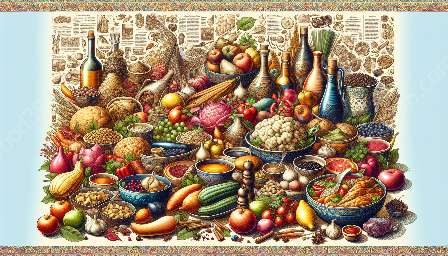Throughout history, religious beliefs have played a significant role in shaping early food cultures and agricultural practices. This article aims to explore how various belief systems have influenced the evolution of food culture and the development of agriculture.
Religious Beliefs and Early Agricultural Practices
In many ancient societies, agricultural practices were closely intertwined with religious beliefs. The need to ensure bountiful harvests led to the development of rituals and ceremonies aimed at appeasing deities associated with fertility and agriculture.
For example, in ancient Mesopotamia, the Sumerians practiced a form of religion that was deeply connected to their agricultural activities. Their belief in deities such as Ninhursag, the goddess of fertility, and Ningirsu, the god of vegetation, influenced their agricultural calendar and farming practices. Rituals and offerings were made to these deities to ensure the success of their crops.
Impact on Food Culture
The influence of religious beliefs on early food cultures was profound. Not only did it shape the types of food consumed, but it also dictated when and how certain foods were eaten. Dietary laws and taboos stemming from religious beliefs have had a lasting impact on food cultures around the world.
For instance, in many Hindu communities, the consumption of beef is prohibited due to the veneration of cattle as sacred animals. Similarly, the dietary restrictions during Lent observed by Christians have influenced the development of specific culinary traditions and food customs.
Origin and Evolution of Food Culture
It is clear that religious beliefs played a crucial role in the origin and evolution of food culture. The association between food and spirituality led to the creation of unique culinary traditions and practices that have been passed down through generations.
Moreover, religious festivals and celebrations often revolve around food, leading to the development of dishes that are specific to certain religious gatherings. This has contributed to the rich diversity of food cultures seen across different regions and communities.
Conclusion
Religious beliefs have left an indelible mark on early food cultures and agricultural practices. The intersection of spirituality and sustenance has shaped the way people grow, prepare, and consume food throughout history. By understanding the influence of religious beliefs on food culture, we gain insight into the deep-seated connections between faith, food, and agricultural traditions.


